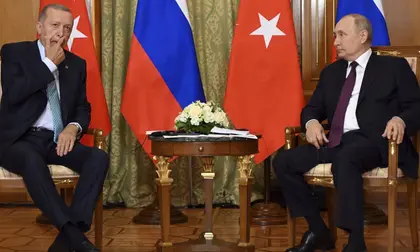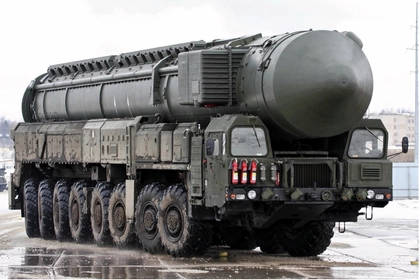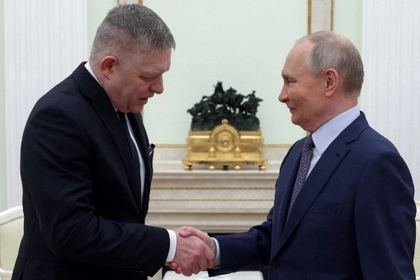Talks this week between Russian President Vladimir Putin and Turkish President Recep Tayyip Erdoğan on reviving the deal on exports of Ukrainian grain have failed. The West must first lift its sanctions on Russian agricultural exports, Putin said after the meeting in Sochi. Commentators assess the remaining options.
Negotiations remain the priority
JOIN US ON TELEGRAM
Follow our coverage of the war on the @Kyivpost_official.
On his Facebook page, Iliya Kusa of the Ukrainian Institute for the Future sees three options for resolving the issue of grain exports via Ukrainian Black Sea ports:
“1) Sustained pressure on Russia. ... 2) Agreement on a compromise. But this requires concessions from all sides. 3) The creation of alternative corridors without Russia's participation. Here, however, the problem lies in security guarantees for such corridors - and who will provide them. Ukraine does not currently have such resources, and Turkey is not ready to take on such a responsibility. ... Judging from the meeting in Sochi, it looks like the second scenario - negotiations with a potential compromise - remains the priority.”
No trade-off on the grain deal!
Erdoğan and Putin can't push through a deal against Ukraine's interests, economist Timothy Ash notes in a post picked up by Ukraine’s NV:
“It was interesting to see Erdoğan replaying Putin's narrative after the Sochi meeting about how Russia must be given access to Swift and ship insurance again before the Black Sea grain trade can resume. But this will not happen, because Ukraine will see this as blackmail (which is exactly what it is). ... Ukraine will not allow an agreement on a grain deal if it is linked to an easing of sanctions.”

‘We Need to End That Horrible, Horrible War’ – Ukraine at War Update for Dec. 23
Ankara's maneuvering will continue
Reality has caught up with our over-optimism, Latvia’s Diena comments:
“It was already clear that Moscow had become noticeably more reserved towards Ankara, which is why the West, and especially the US, hoped that Turkey would also become more reserved towards Russia. However, Russia is too important for this country, whose economy is not in great shape, for Erdoğan to take such a step. Accordingly, Turkey's geopolitical manoeuvring, which works in Russia's favor, will continue.”
Turkey has its own agenda here
Latvia’s Neatkarīgā takes a closer look at the question of Russian gas exports via Turkey, which was discussed during the meeting between Erdogan and Putin:
“Turkey also wants to earn something on the resale of Russian gas: tens of billions of cubic meters of gas are to be re-exported to other recipients in Europe. During a recent visit to Budapest, the Turkish president proposed this solution to Hungary. It is already known that the gas will be delivered to Serbia via the pipeline. Naturally one can say: isn't it a stain on your honor to buy gas from an aggressor country? The reply will be another question: how can one determine whether the gas flowing to Europe comes from Nigeria, Qatar or Russia?”
The wrong negotiating partner
Erdoğan was hoping for a success that was out of his reach, Italy’s La Repubblica comments:
“The fact that he didn't succeed did not come as a surprise to the Russian press and commentators, who all stressed that he couldn't be the one to give Putin what he wants. Moscow insists that the United Nations must honor the agreement to facilitate the export of agricultural products and fertilizers, restore access to the Swift payment system for the Russian Agricultural Bank Rosselkhozbank, and allow the resumption of ammonia deliveries via the Togliatti-Odessa pipeline, which was blown up in recent months. However, most of these demands can only be met by Western countries.”
No prospect of peace
Tyrkey’s Hürriyet columnist Abdulkadir Selvi is disappointed:
The grain corridor was the main focus. ... President Erdoğan spoke clearly about it. ... He didn't say whether he was successful or not, but that finding a solution would take time. At the press conference Erdoğan was asked: 'Have you come with a proposal for a ceasefire?' ... Putin replied first, and thanked Erdoğan for his mediation efforts. But there were no strong statements that gave the green light for a short-term ceasefire or talks with Ukraine. After watching Putin, my hopes for a ceasefire or peace in the near future faded. This war will go on for a long time.”
Two weak strongmen
Germany’s The Süddeutsche Zeitung looks at what the two leaders have in common:
“The main thing Recep Tayyip Erdoğan and Vladimir Putin have in common is that they spend all their time managing their own problems, which they themselves have caused. In Putin's case, there is no need to go into details about the catastrophe into which he has plunged Ukraine and the world. ... Erdoğan needs to solve the problem of the almost four million Syrian refugees in Turkey, where he is also under political pressure. To do that he will have to talk to the Syrian dictator Bashar al-Assad, whom he has avoided for years. And for that, he needs mediation from Moscow, from Vladimir Putin. Two strongmen who are weak.”
See the original here.
You can also highlight the text and press Ctrl + Enter






